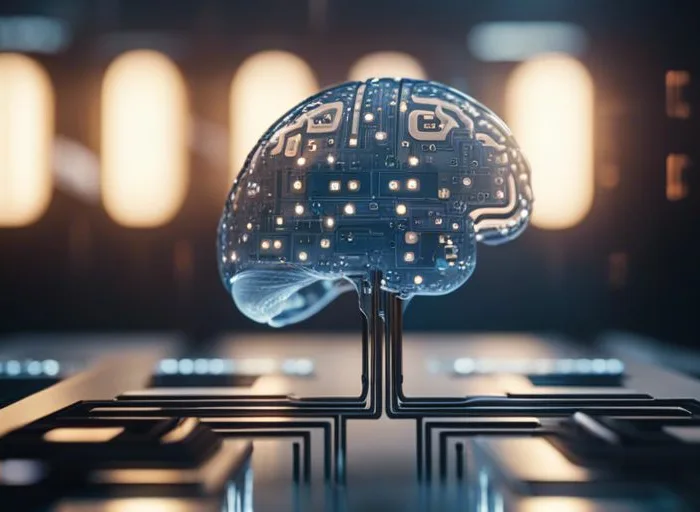
Intriguingly, even though artificial intelligence (AI) is not new, it has suddenly sparked a revolution in how we think and behave, permeating every aspect of our daily lives. From personalised recommendations on streaming platforms to targeted advertisements on social media, AI algorithms constantly influence our decisions and shape our perceptions.
Historical Perspectives
How artificial intelligence is transforming the world sheds light on the historical progression of AI and its far-reaching implications on various aspects of our lives. To truly understand the role of AI in shaping our thoughts and behaviour, it’s crucial to probe into the roots of this transformative technology.
Early AI Developments and Human Interaction
On the path to its current state, early AI developments involved basic tasks like problem-solving and data analysis. These rudimentary interactions laid the foundation for more complex algorithms and predictive models. Human interaction with AI was limited but marked the beginning of a symbiotic relationship between humans and machines.
Evolution of AI and Its Increasing Impact on Society
The early stages of AI primarily focused on automating tasks and improving efficiency. However, as AI evolved, its impact expanded beyond traditional boundaries, infiltrating various sectors like healthcare, finance, and social media. The increasingly sophisticated algorithms are now capable of manipulating behaviours and shaping opinions on a massive scale, revolutionising the way we perceive and interact with technology.
Mechanisms of Influence
AI in Social Media and Information Filtering
Some of the most prevalent ways AI influences our thoughts and behaviours are through social media platforms and information filtering. AI algorithms track our online activities, analyze our preferences, and tailor content to keep us engaged. This personalised content shapes our views, affecting our decisions and actions.
Persuasion and Decision-Making Through AI
Social media platforms and e-commerce sites effectively use AI to influence our decision-making processes. By analysing vast amounts of data, AI can predict our preferences and recommend products or services tailored to our interests and needs. This targeted approach can sway our choices, leading us to make decisions that align with AI-generated suggestions.
For example, when shopping online, AI-powered product recommendations can entice us to purchase items we may not have considered otherwise. Retailers carefully craft these suggestions based on our browsing history and previous buying patterns. It is crucial to be aware of how AI influences our decisions to make informed choices.
Ethical Considerations and Future Implications
Privacy Concerns and Psychological Effects
With the increasing integration of AI into various aspects of our lives, privacy concerns and psychological effects have become paramount. Users are often unaware of the extent to which their data is being collected, analysed, and utilised by AI algorithms. This lack of transparency can lead to feelings of intrusion and manipulation, impacting an individuals’ trust in technology and potentially altering their behaviours and thoughts.
Regulatory Frameworks and Ethical AI Development
A vital aspect of the ethical considerations surrounding AI is the establishment of regulatory frameworks to ensure responsible and ethical development. It is crucial to have guidelines and standards in place to govern the design, implementation, and use of AI technologies. Regulatory frameworks play a pivotal role in addressing issues such as algorithmic bias, data privacy, and the potential misuse of AI. By enforcing ethical principles and standards, regulatory bodies can help safeguard individuals’ rights and prevent the negative consequences of unchecked AI deployment.
AI in Personal Growth and Self-Improvement
AI-Powered Tools for Behavioural Change
One of the fascinating aspects of AI is its ability to assist in behavioural change. AI-powered tools like habit-tracking apps, personalised coaching platforms, and mood-monitoring programs are revolutionising the way individuals approach self-improvement. These tools analyse data to provide personalised insights and recommendations, helping individuals develop healthier habits and achieve their goals more effectively.
Enhancing Cognitive Abilities Through AI
To enhance cognitive abilities through AI is to tap into a world of unlimited potential. With AI-driven platforms for brain training, memory retention, and problem-solving, individuals can sharpen their mental faculties like never before. These tools offer personalised exercises and challenges that adapt to the user’s performance, optimising learning and cognitive enhancement.
With AI-powered cognitive enhancement tools, individuals can boost their memory, focus, and overall cognitive function. These tools have the potential to revolutionise the way we learn, retain information, and solve complex problems. However, it is important to use these tools responsibly and ensure that privacy and data security are prioritised to prevent any misuse or exploitation of personal information.
Summing up
The role of AI in shaping our thoughts and behaviours is a complex and multifaceted issue that requires a deep understanding of the technology and its implications. AI systems have the potential to significantly impact our lives, from influencing our decisions to shaping our beliefs. It is crucial for individuals and society as a whole to be aware of the power that AI holds and to actively engage in conversations about its responsible use and regulation. By staying informed and educated on the advancements in AI technology, we can better navigate the opportunities and challenges it presents in shaping our future.
Key Takeaways:
- AI algorithms influence our thoughts and behaviour: AI technologies, such as recommendation systems and personalised ads, shape the information we receive and can impact our decision-making processes.
- Ethical concerns surrounding AI: There are ethical considerations regarding data privacy, algorithm bias, and the potential manipulation of individuals’ beliefs and preferences by AI systems.
- Need for regulation and transparency: To ensure that AI serves the common good and respects societal values, there is a growing need for regulations that promote transparency, accountability, and ethical use of AI technologies.

